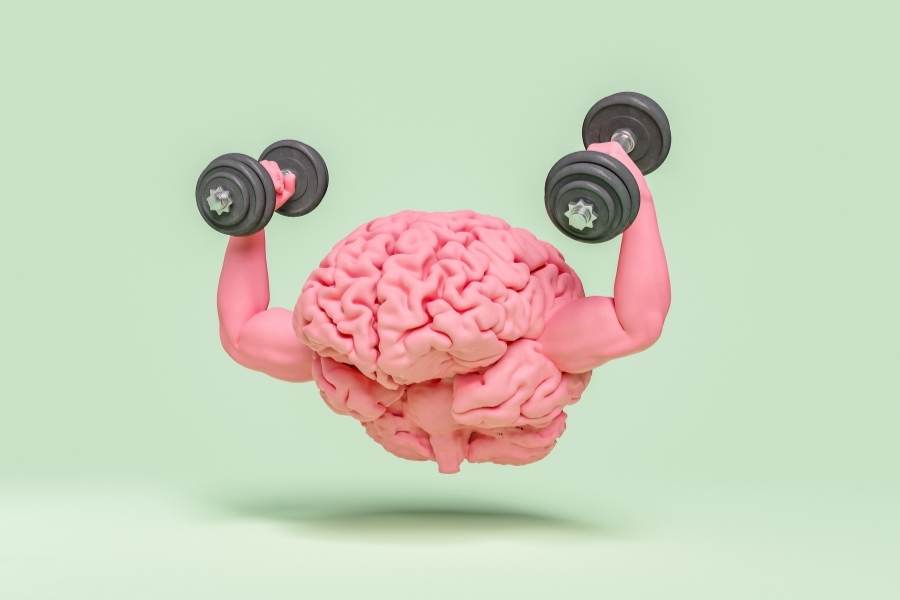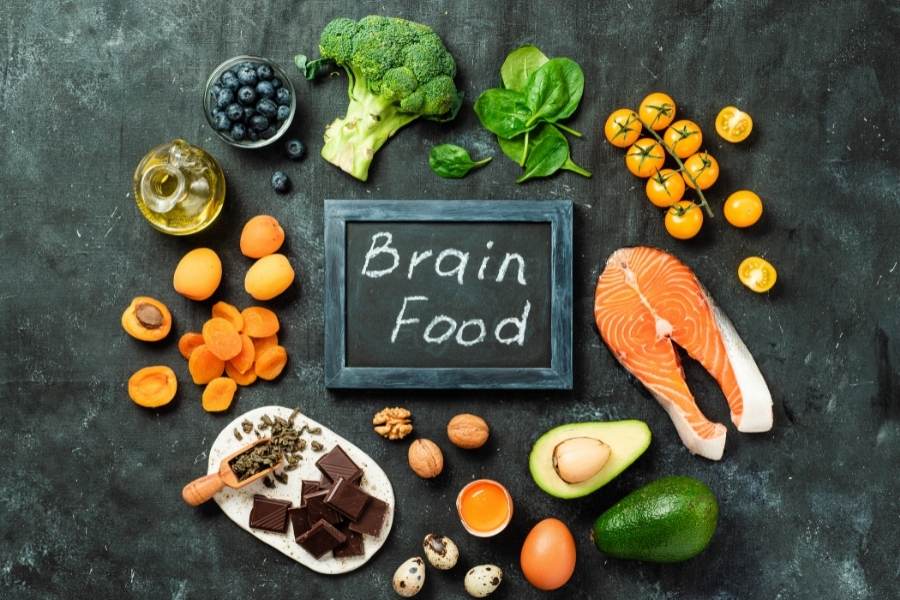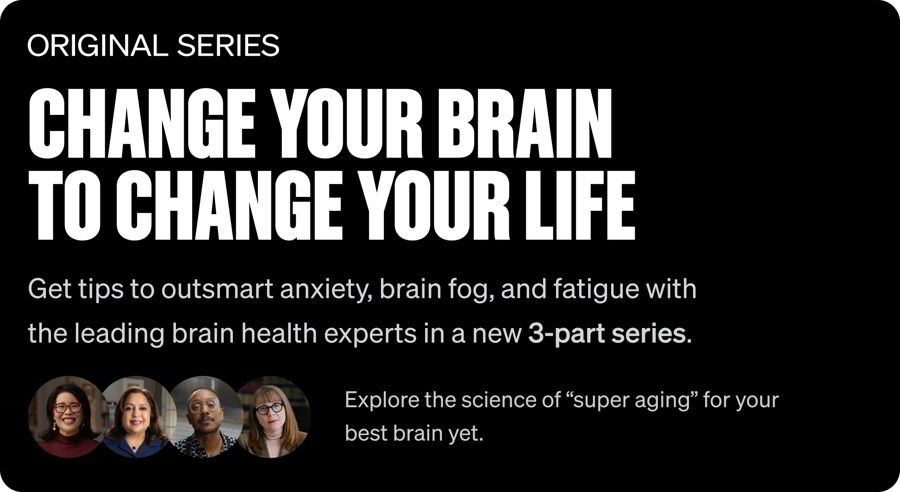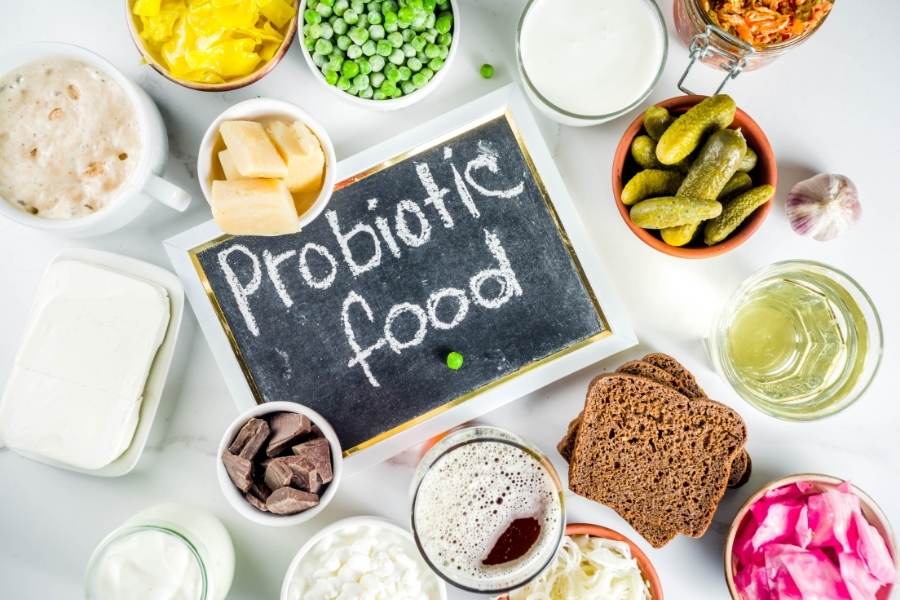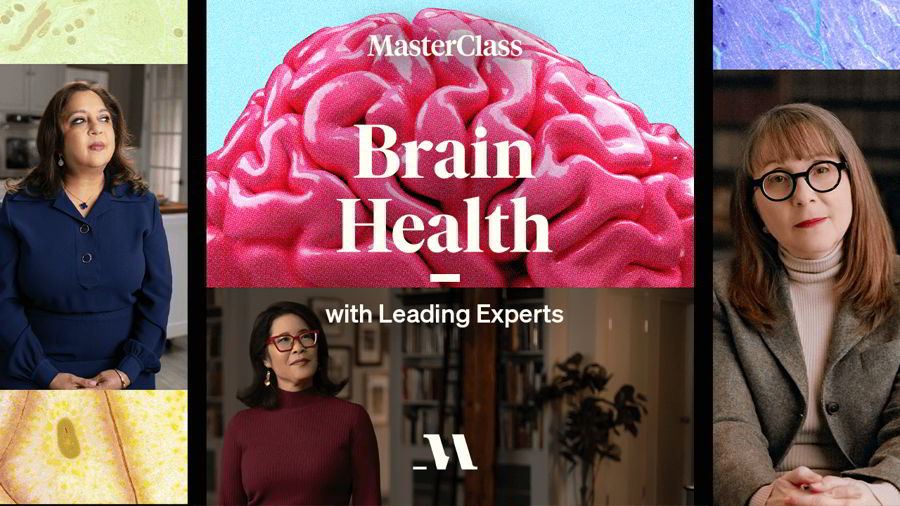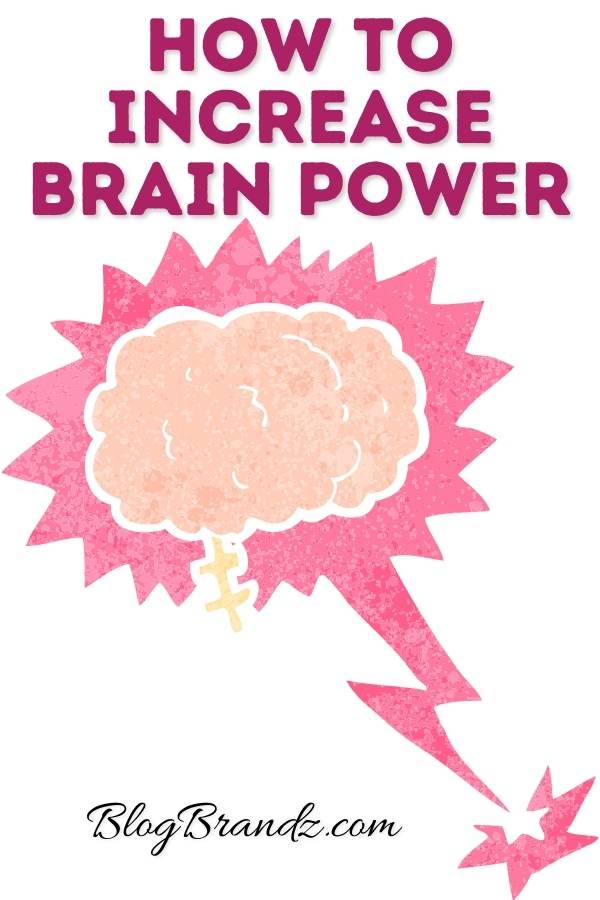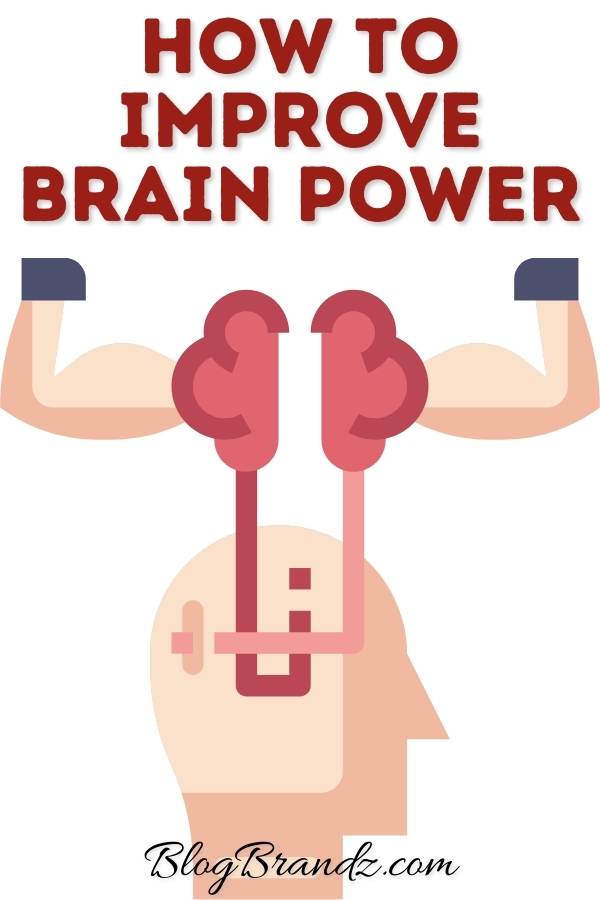Learn how to improve brain power and brain fitness, keep your mind healthy, and enjoy mental clarity, so you can function optimally in your life and work.
Most of us take our brain health for granted, and it’s only when we see evidence of how debilitating brain damage can be, that we realize how essential a healthy mind is for optimal functioning and quality of life.
We have come to expect that our human brain power and memory power will decrease as we get older. But is this inevitable? Not really!
There are many examples of seniors who have learned new skills and even taken up new careers, in their golden years. The most damaging factor is actually the belief that the decline in human mind power is inevitable.
In this MasterClass series on Brain Health, you’ll explore the science of “super-aging” and learn how to leverage brain plasticity to keep your mind as healthy as possible for as long as possible.
Contents
How To Improve Brain Power & Keep Your Mind Healthy
In this article, you’ll learn how to increase brain power, brain fitness, and mental clarity so you can function optimally in your life and work at any age.
#1. Do physical exercise for brain development
A healthy brain requires a healthy body, and while there are many ways to increase the memory power of human brains with brain exercises, staying physically healthy is the most important, by far.
Exercise has been shown to increase blood flow to the brain, and is one of the most important ways to keep your mind healthy. So which is the best exercise for blood circulation in the brain?
While any moderate aerobic exercise for brain health, such as yoga, qigong exercises, weight lifting, walking, and running can stimulate brain circulation and improve brain function, the best physical exercise for brain power you enjoy most.
Once you decide on a brain workout exercise you enjoy, you’re more likely to stick to it and make it a part of your routine.
In this Qigong Course with Lee Holden, you’ll gain a profound understanding of Qi, discover your untapped inner power, and learn how to regain youthfulness, health, and vitality.
#2. Do these brain training exercises
Did you know you can train your brain to increase memory power, focus, and IQ? In fact, the best way to boost brain power is to improve mind activity (use it or lose it!).
The benefits of brain-stimulating activities were well known in ancient India, and there are several yoga practices designed to train the brain and preserve or enhance cognitive abilities such as brain function and memory.
Brain yoga exercises
Yoga is one of the best brain-boosting exercises for brain power. This free yoga tutorial teaches some brain-sharpening exercises to improve memory and concentration.
Here are some of the best healthy brain exercises to increase memory power and unlock your mind’s potential.
Brain gym exercises
You can achieve maximum brainpower with brain exercise games and brain activities, like these brain gym exercises and mudras – easy finger exercises to boost brain power.
Here are some free online brain games websites where you can find the best brain games for adults and kids:
- Brain HQ Brain Training
- Lumosity Games
- Games for the Brain
- Neurobic Exercises
- Sheppard Software Brain Games
Improve your focus & concentration
Peak Focus and concentration are essential for peak performance at work and in life. No matter what is happening inside of you or in your environment, you can learn how to overcome distractions, take control of your focus, and restore your optimum attention and performance.
#3. Eat foods that improve brain function
Nutrition is a very important factor in maintaining optimal brain health, and there’s a lot of research on foods that improve brain function.
Some general guidelines that seem to be supported by the research are to eat plenty of fruits and vegetables, include healthy fats in your diet, and avoid processed foods.
Some of the best brain foods include Omega-3 fatty acids, berries, leafy green vegetables, olive oil, nuts, fish oil, and dark chocolate.
These brain-healthy foods contain beneficial antioxidants, vitamins, minerals, and healthy fats that help improve brain function by protecting the brain from oxidative damage.
Omega-3 fatty acids are like a Superfood for brain health and play a role in healthy brain function by preventing inflammation and maintaining healthy brain cells.
Fish is an excellent animal source of omega-3 fatty acids, while flax seeds and nuts are good vegan sources of omega-3 fatty acids.
Berries are a super food for brain health and one of the foods good for memory as they’re rich in antioxidants, which protect the brain from damage caused by free radicals.
Leafy green vegetables are a good source of vitamins like folate; and minerals which are essential for healthy brain function.
In this MasterClass series on Brain Health, you’ll discover the secrets of brain science to live better in the modern world and get essential tips and foods to help improve your mood and focus to keep you thriving, no matter your age.
Best supplements for brain health
Brain nutrition helps fuel your brain and is important for maintaining brain energy and for optimal function of the nervous system.
There is a lot of scientific evidence to suggest that certain brain food supplements can indeed help to improve brain health. Here are some of the best supplements for brain health, based on the latest research:
- Fish oil is one of the best brain supplements as it is rich in omega-3 fatty acids, which are essential for cognitive function. Fish oil supplements (or vegan Omega-3 supplements) can improve memory, concentration, and mental clarity.
- Vitamin B6 is one of the most important brain vitamins as it helps the body make neurotransmitters, which are required for proper brain function. Vitamin B6 deficiency has been linked to depression and other mental disorders.
- Vitamin B12 and folate (B9) are some of the best vitamins for brain health, as they’re also involved in the production of neurotransmitters and protect against neuronal damage.
- Magnesium is a mineral that’s vital for many different processes, including energy production and metabolism. A lack of magnesium can lead to fatigue, weakness, and muscle cramps. This brain health supplement helps muscles and nerves function properly.
- Psychobiotic bacteria (probiotics and prebiotics) have an effect on the bacterial-brain relationship and have been linked to improved sleep quality, lower stress levels, and improved mood.
- Acai Berry Extract is a powerful brain-boosting supplement loaded with antioxidants and nutrients that help to protect the brain from damage and promote healthy cognitive function.
- Ginkgo Biloba is one of the natural brain boosters that have long been used to stimulate brain circulation and improve cognitive function. It can also help protect the brain from age-related damage.
- Brahmi (Bacopa monnieri) is the best natural supplement for brain memory in the Indian Ayurvedic tradition. Indian ayurvedic preparations such as Hamdard Brain Tonic contain this herb, which is often touted as the best brain tonic for students.
- Vinpocetine is a synthetic molecule similar to a compound found in periwinkle plants (Vinca minor). It is known to improve blood flow to the brain and shield injured neurons from harm and has been clinically used in many Asian and European countries to prevent and treat stroke, senile dementia, and memory disturbances.
#4. Take care of your ‘brain in the gut’
Did you know that we have a brain in the gut? Yes, in fact, the gut and the brain are connected, according to researchers. The enteric nervous system (ENS) – sometimes known as the “second brain” – is a network of nerves located throughout the gut, much like the brain.
Your digestion, mood, and thought processes are all impacted by this link between the brain and stomach. The ENS communicates with your brain and immune system through your nervous system and hormones, which has an impact on your mental health.
The gut-brain axis is also believed to contribute to diseases like Parkinson’s and Alzheimer’s, autism, amyotrophic lateral sclerosis, multiple sclerosis, pain, and anxiety.
According to this scientific review, some psychobiotics strains were reported to inhibit inflammation and decrease cortisol levels, resulting in a decrease in the symptoms of anxiety and depression.
Psychobiotics can help in improving neurodegenerative and neurodevelopmental disorders, including autism spectrum disorder (ASD), Parkinson’s disease (PD), and Alzheimer’s disease (AD).
The use of psychobiotics can also improve gastrointestinal function, ASD symptoms, motor functions of patients with PD, and cognition in patients with AD.
Studies have also shown that probiotic supplementation can improve depressive disorder and cognitive impairment in patients and experimental animal models by affecting the gut-brain axis.
This means probiotics are capable of more than just enhancing gut health, but can also indirectly improve your brain health. WebMD has some more tips to improve your gut health and brain health.
#5. Learn how to reduce stress & anxiety
Reducing stress and anxiety can be extremely beneficial for cognitive function, as well as overall physical health. Less stress means better blood flow and oxygenation to the brain, which helps keep your mind healthy.
There are many ways to reduce stress and anxiety, but the first step is to identify what’s causing it. Once you know what your triggers are, you can figure out how to deal with them.
Perhaps there’s someone or something in your life that always gets under your skin. While you can avoid them as much as possible, this is not always possible.
The better option is to find coping mechanisms (deep breathing exercises, listening to calming music, etc.) that will help you deal with the stressful or triggering situation when it arises. Meditation is a great exercise to relax the mind and reduce stress and anxiety.
Mindfulness-based therapy has been scientifically proven to be incredibly effective in reducing stress and anxiety, which is why it boosts brain power.
The connection between mindfulness and emotional well-being has been scientifically established. These free mindfulness workshops and courses will help you learn mindfulness skills and cultivate mindful living.
Some people find that talking to a friend or therapist, or journaling can help reduce stress and anxiety and promote mental clarity. Whatever works for you, make sure you’re taking some time out for yourself every day to do something that helps you relax and de-stress.
Exercise is also a great way to reduce stress and anxiety. Not only does it help your body to cope with stress and anxiety, but it can also help to relax your mind and boost your mood by releasing endorphins.
Just remember that everyone experiences stress and anxiety in different ways, so what works for one person may not work for another. So experiment with different emotional self-care practices and see what brings you relief.
#6. Learn to play a musical instrument
Studying music is known to have a profound effect on the brain. Numerous studies have shown that learning music can improve cognitive abilities, increase brain power, and even help prevent Alzheimer’s and other degenerative diseases.
So how does learning music actually improve brain power? One of the primary ways is by stimulating various areas of the brain responsible for memory, language, spatial awareness, and logic.
Music also encourages divergent thinking and allows your brain to find creative solutions to problems. In addition, music has been shown to reduce stress levels and promote relaxation.
When you learn to play an instrument, you’re not just acquiring a new skill. You also use your brain power and increase the capacity of your brain to process information and solve problems.
Music has been shown to have several benefits for the brain. It has been shown to improve the function of the brain’s executive control center, which is responsible for activities like attention, working memory, and problem-solving.
Learning to play an instrument can help improve memory and cognitive skills. In one study, seniors who took piano lessons showed improvements in their working memory and executive function (the ability to multitask and plan ahead).
In another study, researchers found that eight weeks of music training improved the performance of autistic children on tests of spatial-temporal reasoning (the ability to see how objects fit together in space and time).
The improvement was equivalent to what’s typically seen after an intensive one-on-one behavioral intervention. Other studies have shown that music training can enhance reading skills, mathematical ability, and IQ scores.
You can study music online to increase brain power, and even go on to become a successful musician, singer, songwriter, or independent artist if you choose to.
Playing music can also help reduce stress and anxiety, and may even boost mood and well-being. In addition to the direct benefits of creating music, simply listening to tunes can also enhance brainpower.
One study found that people who listened to classical music while completing a mental task performed better than those who didn’t listen to any music at all.
#7. Get enough sleep
Sleep is very important for general health, including brain health. Adequate sleep reduces inflammation, helps protect against chronic diseases, improves mental well-being, and helps regulate emotions.
When we’re awake, our brains are constantly processing information and creating new memories. This taxing activity produces waste products that can damage cells and contribute to inflammation.
When we sleep, the brain clears out harmful toxins that build up during the day as a result of normal brain activity. Sleep allows the brain to clear away toxins that have built up. When you don’t get enough sleep, your brain literally begins to eat itself.
Loss of sleep can cause astrocytes to begin destroying more of the connections and debris in the brain. Chronic sleep deprivation increases the risk of Alzheimer’s disease and other neurological conditions in the long run.
Sleep deprivation can also disrupt the balance of neurotransmitters. Proper sleep is important for maintaining healthy levels of neurotransmitters in the brain and may be important in preventing Alzheimer’s disease and other forms of dementia.
A night of good sleep is also essential for cognitive function and learning, and it improves brain health by strengthening neural connections.
During sleep, the brain strengthens the connections between neurons involved in learning and memory formation and consolidates memories from the day into long-term memory.
Scientists have found that when we sleep, the brain “replays” memories of the activities we performed that day, and this plays a role in how we learn and form long-term memories, helping us process and recall information better, and learn new things more easily.
In this MasterClass series on Brain Health, you’ll learn how memories are formed, explore strategies to help strengthen your memory and combat age-related decline and get brain-boosting recipes to help with better sleep and cognition.
Follow the steps above to maintain brain fitness, keep your mind healthy, and enjoy mental clarity, to unlock your brain power and function optimally in your life and work.
© 2022 – 2025, Priya Florence Shah. All rights reserved.
Priya Florence Shah is a bestselling author and an award-winning blogger. Check out her book on emotional self-care for women. Priya writes short stories and poetry and chills with her two-legged and four-legged kids in her spare time.
Discover more from Business & Branding Tips
Subscribe to get the latest posts sent to your email.



